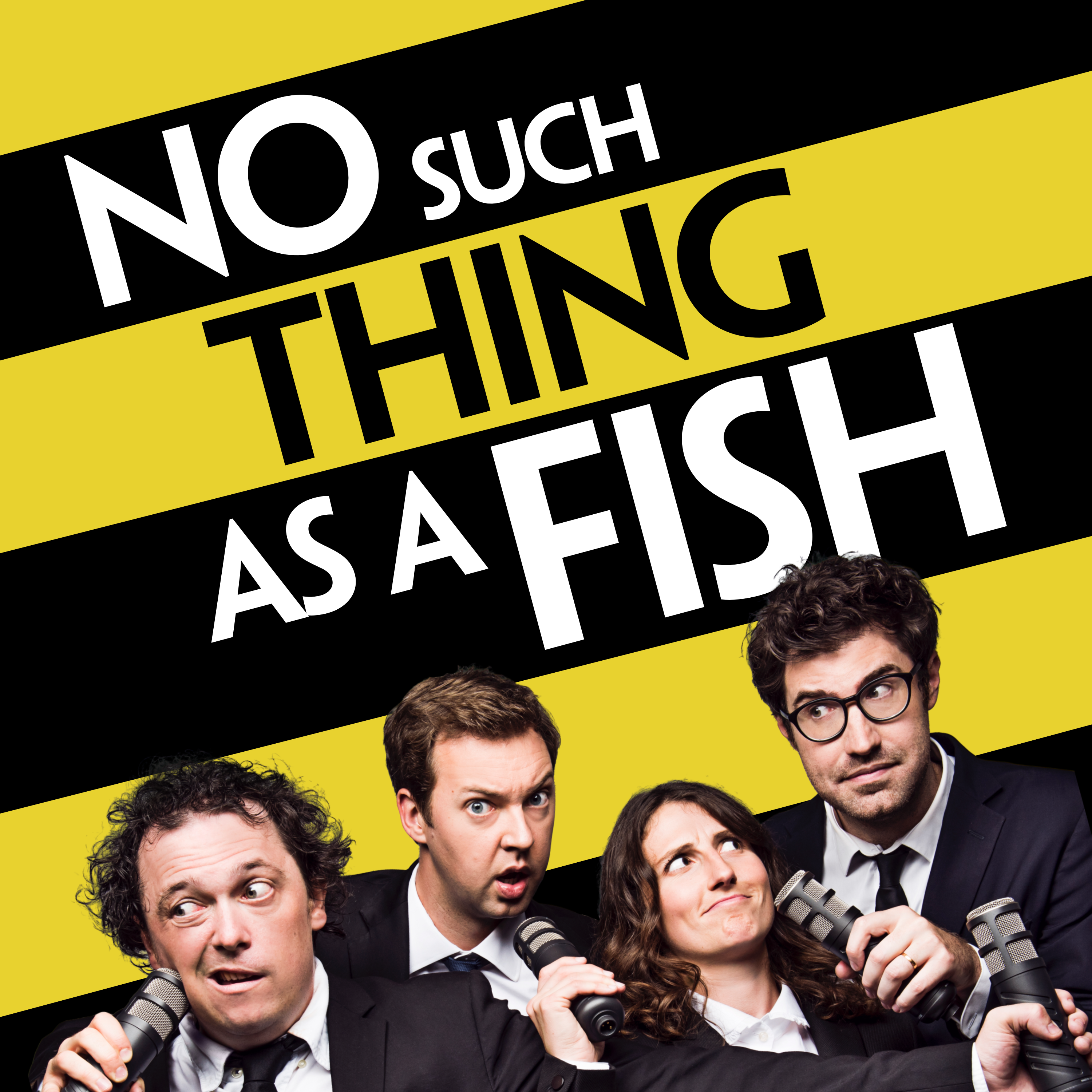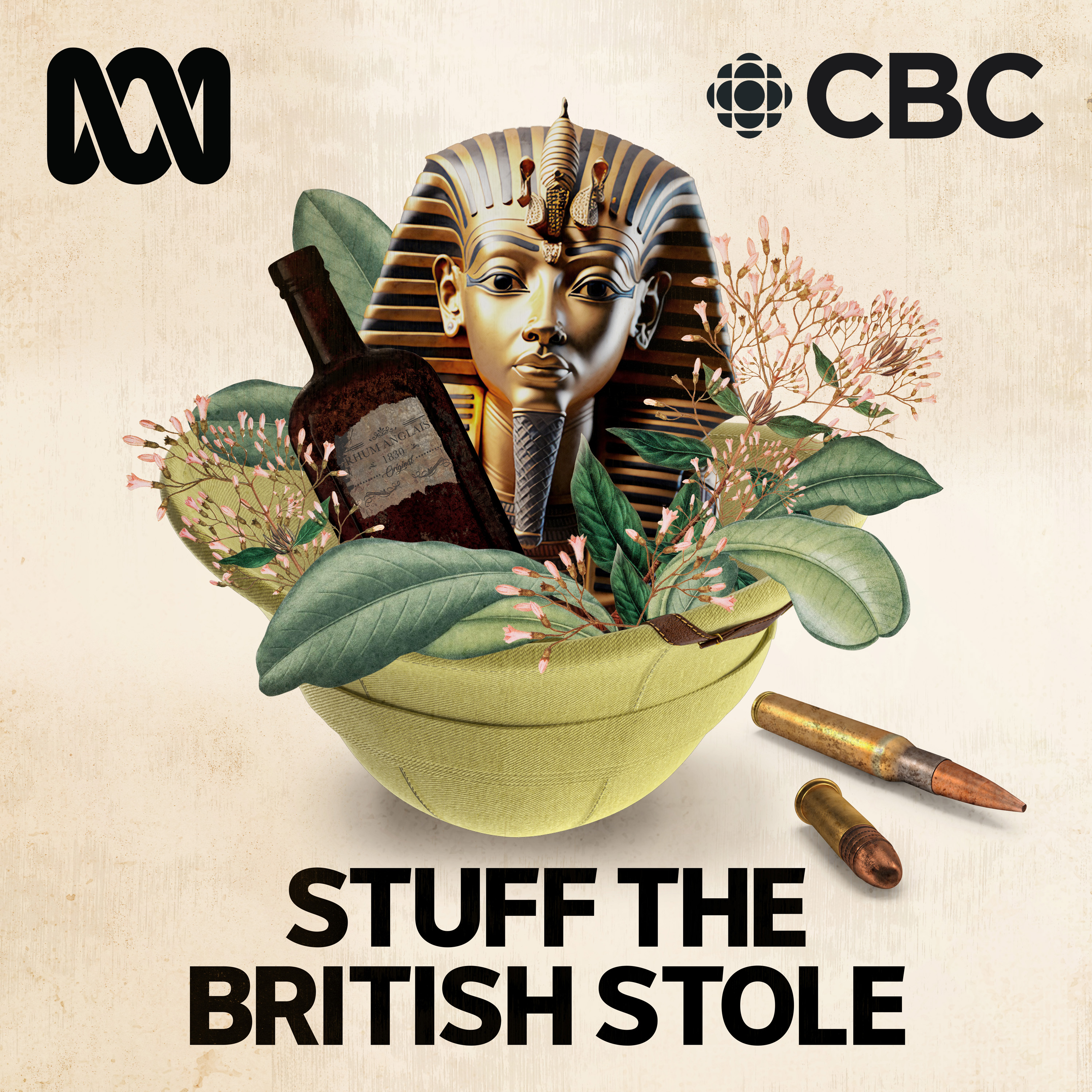
Piano, finally
Piano Finally is a podcast by an old bloke who is learning the piano, finally. I cover the process of learning the piano and music theory as an adult learner. I also review piano books, hardware and other materials from an adult learner's perspective.
Piano, finally
Episode 70 - The Judging of Art
🎧 This Week’s Competitions
The Out West Piano Fest is just around the corner, and I’ll be heading to Bathurst for the weekend—my first planned break from the podcast. If you’re there, say hello! Details at pianoplus.com.au/out-west-piano-fest-2025.
For those who enjoy piano competitions, the Honens International Piano Competition is underway, with finals streaming live and available afterwards on the Honens YouTube channel. Meanwhile, the 19th International Chopin Competition continues into its second week—forty pianists made it to Stage Two, though my pick, Anthony Ratinov, didn’t advance further. Performances and highlights are available on the Chopin Institute’s YouTube page.
🎭 Theatre Recommendation – Legally Blonde
The Blue Mountains Musical Society’s production of Legally Blonde is running at the Blue Mountains Theatre in Springwood until 2 November. The cast, led by Charli Arkle as Elle Woods and James Matheson as Emmett Forrest, were outstanding—two dogs even joined the cast and performed perfectly! Minimal staging, but top-tier performances. Highly recommended.
📝 Essay – The Judging of Art
Watching the Chopin Competition got me thinking about what it means to judge art. In science, comparisons are objective—numbers, measurements, and repeatable outcomes. In art, not so much. You can quantify accuracy, but not interpretation. Garrick Ohlsson, chair of the Chopin jury, admitted that pianists he preferred didn’t progress—a reminder that even experts disagree. Art isn’t about ranking; it’s about expression.
Competitions, I think, should be showcases rather than scoreboards. Like Devi’s annual student recital, where everyone performs, no prizes are awarded, and every listener connects differently. The value lies in participation and appreciation, not comparison.
🎧 Review – In-Ear Monitors & Wireless Setup
I’ve switched to Mee Audio MX Pro in-ear monitors for podcasting and practice—clear sound, low leakage, and modular design. Paired with the Swiff Audio WX 520 Wireless System, the setup makes recording much easier. Both came from Mooloolaba Music Centre, where the staff were excellent.
🎹 Progress
This week’s practice: Wynn-Anne Rossi’s A Wild Chase, recorded on the Kawai NV10 with Pianoteq 9 emulating a Steinway Model D.
You can contact me:
- via email at david@pianofinally.show; this is probably the best option
- the show website, www.pianofinally.show
- Instagram and Threads @pianofinally
- and on YouTube
- all the podcast directories - list
- here's the RSS feed
Some of the links to books and other items mentioned in the podcast may affiliate links for Amazon or other providers. If you use one of these links, a commission may be paid to me at no additional cost to you. Thank you if you use a link.
All reviews of products, websites and services are unpaid, and no sponsorship has been received for any content on this podcast.
G'day everyone, I'm David Reidy. Welcome to Piano, Finally, a podcast by an old bloke who's getting around to learning the piano. Finally. Welcome to Show 70. Thank you very much for listening. If this is the first time you're hearing the podcast, I hope you enjoy what's in the show. If you're back for another episode, then thanks for returning. If you too are learning a musical instrument, let me know how you're going with it. You can contact me at david at pianofinally.show. I'd like to welcome all the new listeners to the show. I mentioned about a month ago that there had been a large increase in the number of downloads the show receives. Well, over the last week, it has more than doubled again. So an especially warm welcome to everyone who has just found the podcast. I'm now talking to more people with the podcast That I speak to in my work each week Also, a really big thanks to whomever it is That's been promoting the show Because it hasn't been me There probably won't be a show next week The Far West Piano Fest starts this coming Friday And runs for the whole weekend The festival is in Bathurst Which is about 90 minutes away from my house I'm travelling there on Friday As work owes me a day off This will be the first episode of the podcast that I have planned to miss. I've always said that the most important thing in podcasting, after the content itself and the audio quality, is consistency. My intention was always to do the podcast every week, but knowing how life can sometimes get in the way, my actual goal is to get 50 episodes out each year, which gives me two weeks a year to be flexible. In the first year of the podcast, Those two weeks got used up when I unexpectedly found myself in hospital for nine days. This year, a bad case of influenza meant no recording for one weekend. I rarely get sick, as I hadn't had even a cold since before COVID, and I got all the way through that without catching it. As it is, I still have one week up my sleeve for this year, and I think I'll use it next weekend. I won't be podcast idle though. I'm going to try to get some interviews for the show, both with performers, organisers and other attendees. If you're at the festival, please come up and say hello. I've got some piano finally jumpers I'll be wearing, unless the weather is too hot. If you're into piano competitions and would like to hear something other than Chopin, the Honan's International Piano Competition is now on, with the final rounds being held in Calgary, Canada. These semi-finals and finals are being live-streamed and are also available afterwards on YouTube. The production is not quite as polished as some of the other competitions So it might be a good idea to watch the recording And keep a remote closed so you can skip through the filler material Of course, the piano playing is great There are links in the show notes The 19th International Chopin Competition Has continued into its second week with the first stage eliminations out of the way. 40 pianists had made it from the first stage to the second stage, including my pick for the competition, Anthony Ratanov from the United States. The 40 pianists performed again with a different selection of Chopin pieces. At the end of the concerts, the jury decided on the 20 who would proceed to the third round. Unfortunately, my pick didn't make it through. I'm enjoying catching the different performances in the competition and as you would expect, I've yet to hear a bad performance. You don't make it to the Chopin competition unless you're already an excellent pianist. I must admit though I have little idea of what it is the jury is looking for. I'm content just to listen to the performances generally while I'm doing something else. You should try and catch at least some of the competition even if it is just to see the quality of the live streaming production. As I write this the finals are about to start in a few hours. There are 11 finalists, and each of them will perform the Polonaise Fantasy Opus 61 and one of Chopin's Piano Concerti. I'll be watching those, though not live. The performances start at 3am Sydney time. Also, the Polonaise Fantasy is one of Chopin's pieces that I really enjoy, so I'm looking forward to the performances. The other music I watched this week was the Blue Mountains Musical Society's production of Legally Blonde. It's running at the Blue Mountains Theatre in Springwood until the 2nd of November. As expected, the production was excellent. I haven't seen the movie, and although I knew about the whole pink colour scheme by one of the other teachers at work, I wasn't sure what to expect. It's not Sondheim, but the energy and enthusiasm of the cast, combined with their outstanding performances, made it a great way to spend the afternoon. As with other productions I've seen, the staging was fairly minimal. but the cast made good use of the scenery and the props and it really was the performers singing and dancing that carried the show. Charlie Arkell, who sang the lead role of Elle Woods, was amazing, as was James Matheson as Emmett Forrest, the male lead. There were also two dogs as part of the cast, both of whom behaved excellently. If you get a chance to see the production, do so. This is a professional level show in every respect, except the ticket prices. I highly recommend it. The Judging of Art As you can probably guess, the topic of this episode's essay comes from the International Chopin Piano Competition I've been watching. In particular, it comes from me not having any idea what it is that the people in the jury are looking for in a performance. Of course, it's not just piano playing that gets judged and ranked in competitions, and so I have been thinking about whether we really need art-based competitions at all. My background is in science. I am very used to being able to compare physical properties and deciding which one is bigger or brighter or louder or whatever. I also enjoy the fact that, provided your equipment is working correctly, everyone else will be able to agree. Well, everyone if we ignore the social media people who take a contrary view just because they want clicks. In a few weeks, I'll be marking science exam papers, and again, the ranking from most successful to least successful in the exam will be pretty straightforward. Marking science is easy. There are well-defined right and wrong answers, correct ways to tackle a problem, and incorrect ways. There's no subjectivity in the marking, and two teachers will generally mark the same work in the same way. This isn't the case with art. If I were to be asked to come up with a system to decide which one of a collection of piano players was the best, I could simply write some software that took the MIDI from the piano, compared it with the written score, and gave a number for how accurately the pianist played the music. Would this work out the best piano player? Probably not. It would only work out the most accurate piano player, and that's not the same thing. The jury in the Chopin competition isn't looking for the most accurate pianist. Clearly, accuracy is important. You still need to recognise that what's being played is the étude in A minor, but it's the player's interpretation that gets them the points. And judging that interpretation is clearly not objective. When the first round results of the Chopin competition were announced, Garrick Ohlsson remarked that some of the pianists he preferred did not progress to the second round. Given that Garrick is the chairman of the jury and was the one presenting the results, it sort of shows that there was not a unanimous decision by the judges. So if not even the official adjudicators of the competition can agree on who is better than whom, doesn't it show that the whole idea of there being a best is a bit of a furphy? The winner of the competition will be the person whom a majority of a tiny minority of professional pianists and music scholars has chosen. A different group of jurors would, no doubt, have chosen someone else. Undoubtedly, the pianists they would have progressed through the rounds would have been different, and of course, none of us was a member of the jury, so our choice would also have been different. Indeed, we may have decided not to choose at all. As a teacher, I often get asked, Are we your favourite class? Or, is the other class better than us? I always respond to saying that I don't compare my classes or my students. I honestly don't have a favourite class. I do have classes I enjoy working with more than others, but that doesn't make them better, just different. I think piano competitions and other art-based competitions should act as showcases, rather than trying to rank players in order. The piano recital that Devi runs for her students each year is a showcase of everyone's efforts. There are no prizes at the end. Each listener will have the pieces that work for them and those that don't. and there is no expert telling them that their opinion is invalid. I'm enjoying the Chopin competition because I'm hearing a lot of hard-working musicians performing at their best, but I'm not comparing them to each other, and I'm missing hearing more from some of them because the jury decided they should go home now. This week's review consists of two parts, some in-ear monitor headphones and a wireless connection kit. I found myself needing a new set of headphones to use while recording the podcast and playing a keyboard. I have a very nice pair of Neumann NDH30 headphones which I use when editing, but they're open back and not really suitable when voice recording. Open back headphones are great for listening because they have nothing blocking the motion of the speakers. They do a really good job across a wide range of frequencies. The downside is that because there is nothing blocking the speakers, they are quite audible when you are wearing them, and my podcast microphones will pick up the sound. I was thinking of getting a matching pair of Neumann’s NDH20 headphones. They have a similar look and feel to the 30s, but with a closed design. Before buying them though, I thought I would look around a little to see what's available. I've been using headphones for many years. I have a set of Sony over-the-year noise-cancelling headphones for long trips. Most of the time though, I use a pair of Apple AirPods, so I'm used to in-ear devices as well. I had noticed that many of the performers I watch on YouTube use wired in-ear monitor speakers, so I started researching them. In-ear monitors have the advantage of being quite small, a little bigger than Apple AirPods, but with wires. They're designed to comfortably fit in your ears and to provide some amount of sound isolation and hearing protection. It's fairly common for live musicians to wear them to let them hear their own instruments more clearly and other audio such as cues and click tracks. The monitors range in price from around $50 to over $1,000 depending upon the features and the name of the manufacturer. One distinguishing feature amongst the higher-end brands is that the units are designed for specific purposes and to match the requirements of different musicians. As I'm using mine with a piano and keyboard, I chose the version that has the widest and flattest frequency response. A bit of online research suggested the MX Pro series from Mi Audio. There are four models in the series, varying by the number of speakers in the earpiece. The MX4 has a subwoofer and three armatures for a very flat frequency curve. The system is modular, with replaceable cables and ear tips. The unit comes with a selection of different ear tips, but the default ones that came attached worked fine. The sound is very clear. I've been using them with the headphone output from my EVO interface, and the volume is good, and importantly, there is no leakage of sound that the microphone can pick up. I noticed when I edited last week's podcast that there was less noise in the recordings. The MX Pros are quite customisable. I have a clear set, but you can add customised logos on the outside. I might think about getting some Piano Finley ones made. But more importantly, one of the reasons for choosing the Mi Audio range is that you can get custom in-ear tips moulded to fit exactly. The process involves getting an audiologist to make either a scan or a cast of your ear canals and then sending the information, or the casts, to Mi Audio for them to make the custom ear tips. Using the custom tips is meant to be much more comfortable and offer better noise reduction. Not that I need that. I'll have a look around for an audiologist who does the scans. I'll let you know how it goes. One problem that I initially had with the in-ear monitors was the length of the cable. The first thing I tested them on was the Roland FP30X while I was in Queensland. The Roland has a headphone jack on the front but the cable is only about a meter long so every time I got up I'd forget about the cable until I felt it pulling. This hasn't previously been a problem at home as the Neumann headphones have a very long cable which lets me move around while putting the podcast together. I knew the short cable wouldn't work when doing the podcast, so the obvious solution was to go wireless. And so, with some more online research, I found the Swiff Audio WX520 wireless system. This is a 5.8GHz wireless system that consists of a small transmitter and a matching receiver. It is very easy to set up, and because it works at 5.8GHz, it doesn't suffer from very much interference. The transmitter has stereo and mono inputs and gets its power via a USB-C connection. It has an inbuilt battery, so it doesn't need the power to use. The whole unit is built into a small case. A clever detail is that the receiver fits inside that case and recharges while it's in there. This is similar to the Rode wireless microphones I use. The receiver has a belt clip and an easily accessible volume control. I'm not sure how long the battery will last, but it had no trouble handling the couple of hours it took to do the last podcast episode. The combination of the Mi Audio in-ear monitors and the Swiff wireless system has made making the podcast more convenient, and the pair of devices will be useful if I ever find myself performing as part of a group. I bought these while I was on the Sunshine Coast in Queensland, visiting some of the family. It gave me a chance to go to the Mooloolaba Music Centre, where I'd bought things from in the past, but only online. It's a great store, with lots to look at and try out, and the staff are really helpful. The salesman who helped me with the in-ear monitors also uses that brand himself, so he was able to speak knowledgeably about them. Also, they seem to have better stock levels than the shops in Sydney, so if you're in Brisbane or the Sunshine Coast, it's worth a visit. Link in the show notes. Don't forget, there probably won't be a show next week Although, if I get a chance, I might post something from the Piano Festival I'm going to take the recording equipment And we'll try to bring back some interesting audio As the last concert will finish around 5pm on Sunday And I will still need to drive back home I'm not sure that there will be time to get very much done one thing though I am looking forward to is from Marc Larochelle over on My Keys To Music Mark releases patches for Nord keyboards over on his Patreon and during the week he posted patches for Van Halen's Jump for the Stage 3 and Stage 4 this song is one of the reasons I became interested in the piano to start with and stage pianos once I knew that that was what I needed I think I'm going to have a lot of fun learning the piece with the almost authentic sounds if you'd like to contact me email is the best way. You'll find me at david at pianofinally.show and the website at www.pianofinally.show. In both cases, Piano, Finally is all one word. The show is also on Spotify and available as audio only on YouTube. You can subscribe via any popular iOS or Android podcast application or from directories such as Apple Podcasts, Spotify or YouTube. I also post an excerpt and link for each episode as an Instagram reel. If you're learning an instrument, let me know where you are in your journey. What's going well and what are the challenges? How are you managing your time? So, until next week, or perhaps the week after, I hope your piano stays in tune and you enjoy your time at the Keys. The progress piece this week is once again Winan Rossi's A Wild Chase. I have finally added in the last four bars, and I'm working on getting the rest to play smoothly. The piece is meant to be played quite quickly, but I'll work on speeding it up once I've got all the notes in place. The music was recorded using the Kawai NV10 as the keyboard, and the M4 Pro Mac Mini running Cubase and Pianotech 9, emulating a Steinway Model D Grand Piano. This is the new version of Pianoteq, which was released during the week. I'm still exploring this version, but to my ears, things still sound the same, which is pretty good. I'll do a proper review of it once I've had a bit more experience with it. Thank you. Thank you. you
Podcasts we love
Check out these other fine podcasts recommended by us, not an algorithm.

Connected
Relay
Upgrade
Relay
No Such Thing As A Fish
No Such Thing As A Fish
We Can Be Weirdos
Global
Stuff The British Stole
ABC and CBC
The iDeveloper Podcast
Steve Scott (Scotty) & John FoxRaven On: A Pop Culture Podcast
Natalie Bochenski & Stuart Layt
Smart Enough to Know Better
Dan Beeston & Greg Wah
TopMusic Piano Podcast
Tim Topham
The Chopin Podcast
Garrick Ohlsson and Ben Laude


